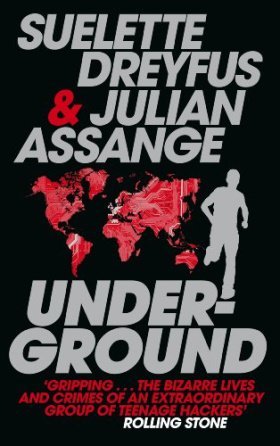- Par
Subject: Par
From: Erik Bloodaxe
Date: Mon Jan 29 19:36:38 1990
Buddy, Par, you are over the edge … lay off the weed. Not everyone with glasses and dark suits are Feds. Not all cars with generic hubcaps are government issue.
Well, hell, I don't know what the hell `Eddie' is, but that's a real bizarre message you left.
Fly to Austin … like tomorrow … got plenty of places to stash you until things can be smoothed out for a calm transition.
- Erik
Subject: eehh…
From: Phoenix [from Australia]
Date: Tue Jan 30 07:25:59 1990
hmmmmmmmm…
<wonders real REAL thoughtufully> [sic]
<and turns up a blank…>
what is young Par up to?
Subject: Par and Erik
From: Daneel Olivaw
Date: Mon Jan 29 21:10:00 1990
Erik, you aren't exactly the best person to be stashing people are
you?
Subject: You know you are screwed when.
From: The Parmaster
Date: Wed Jan 31 14:26:04 1990
You know you are screwed when:
When surveyers survey your neighbors regularly, and wear sunglasses when it's like 11 degrees farenheit and cloudy as hell out.
When the same cars keep driving by outside day and night. (I've been thinking about providing coffee an d doughnuts).
- Par
Subject: heh, Par
From: The Mentor
Date: Wed Jan 31 16:37:04 1990
Ummm. I wear sunglasses when it's 11 degrees and cloudy … so you can
eliminate that one. :-)
Subject: Hmm, Par
From: Phoenix
Date: Thu Feb 01 10:22:46 1990
At least you arent getting shot at.
Subject: Par, why don't you …
From: Ravage
Date: Thu Feb 01 10:56:04 1990
Why not just go out and say `hi' to the nice gentleman? If i kept
seeing the same people tooling around my neighborhood, i would
actively check them out if they seemed weird.
Subject: Par, jump 'em
From: Aston Martin
Date: Tue Feb 06 18:04:55 1990
What you could do is go out to one of the vans sitting in the street (you know, the one with the two guys sitting in it all day) with a pair of jumper cables. Tell them you've seen them sitting there all day and you thought they were stuck. Ask them if they need a jump.

























